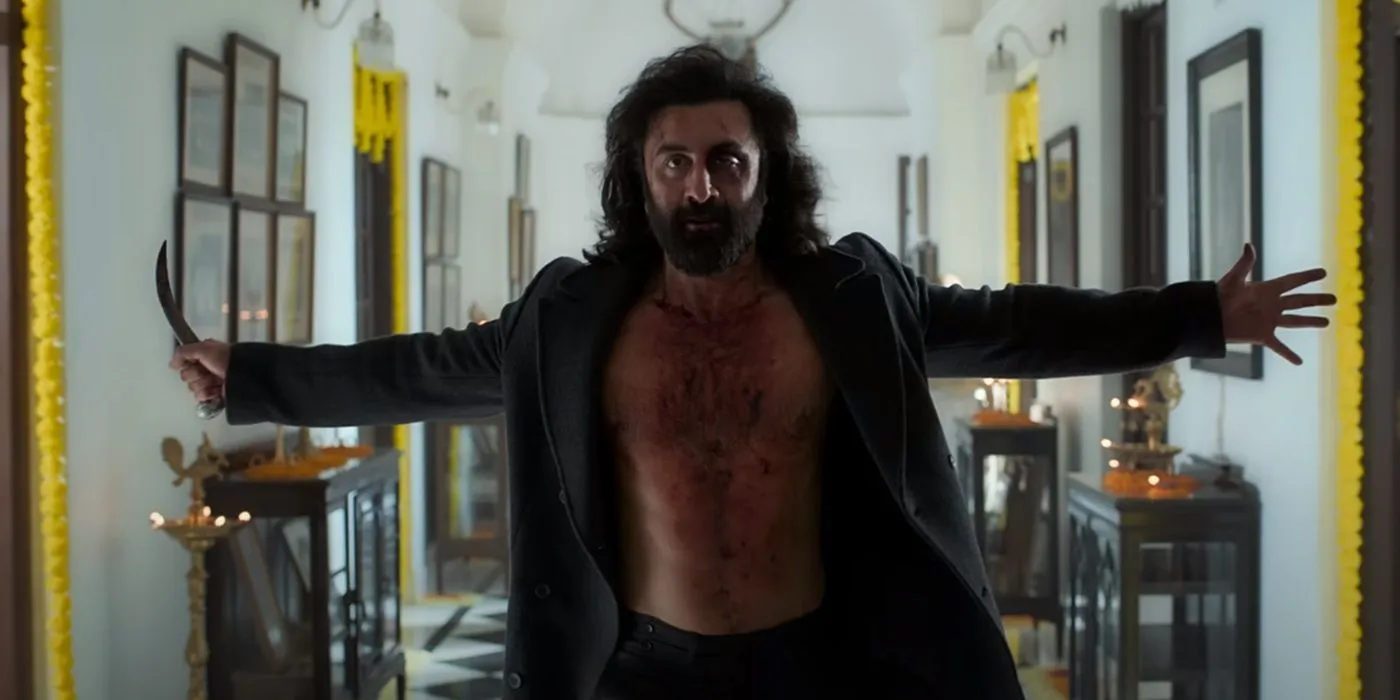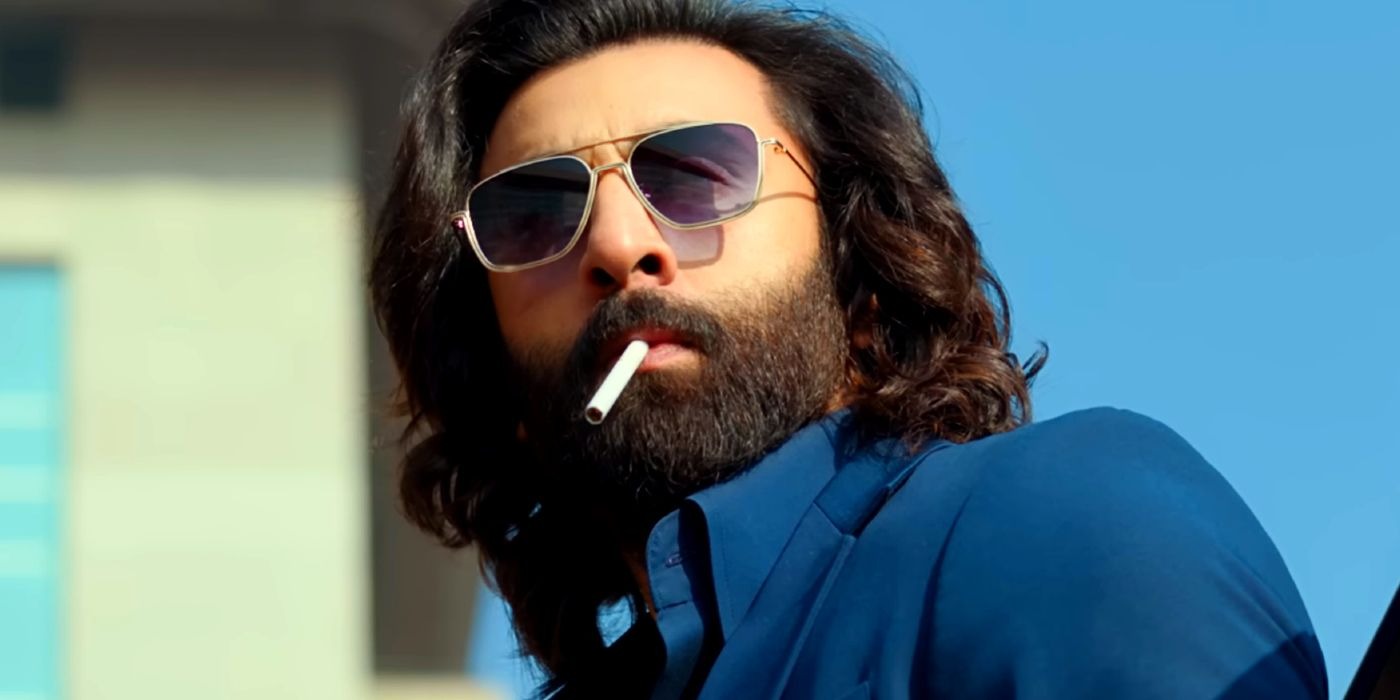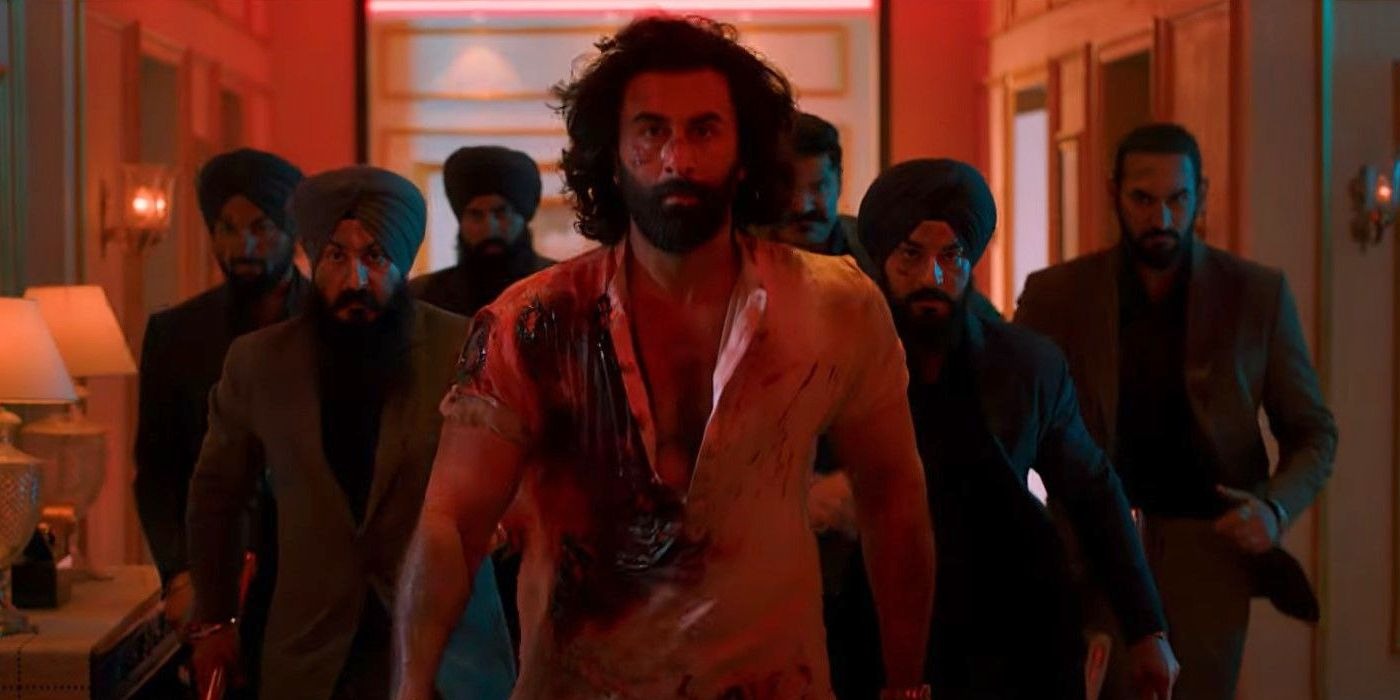During a 2019 interview with Anupama Chopra, Sandeep Reddy Vanga—who had just released Kabir Singh, a film that sparked intense debate over its portrayal of violence against women—was told she hoped his next film would not generate as much controversy.
In response, Vanga made it clear that his next project would be even more provocative, stating, “I’ll show them what a violent film looks like.” Fast forward four years, and he has made good on that promise with Animal, a film that indulges in relentless bloodshed, severed limbs, and gory violence.

This makes Kabir Singh’s depiction of misogyny seem tame in comparison. As anticipated, Animal emerged as the most talked-about and divisive Indian film of 2023. Every bit of its controversial nature appears deliberate, as critics harshly condemned it with words like “vile” and “disgusting.”
However, while film analysts tore it apart, audiences responded differently, propelling it to record-breaking success at the box office. The film now ranks among the highest-grossing Indian movies of all time.
Given the way it ends, it’s clear that Vanga not only expected controversy but also banked on commercial success, teasing an even more brutal sequel.
Animal Glorifies Its Toxic Lead Character
The title Animal is a direct reference to its lead character, Vijay (Ranbir Kapoor), a man so out of control and morally bankrupt that his sheer unpredictability keeps viewers locked in, eager to see his next outrageous move.
The film attributes his destructive tendencies to deep-seated psychological scars from his strained relationship with his father, Balbir Singh (Anil Kapoor).
Vijay places his father on a pedestal, idolizing him to the point of worship, yet he believes he has been denied the affection and validation he rightfully deserves as a son.
Across the film’s extensive 3.5-hour runtime, Vijay’s reckless behavior—from infidelity to ruthless massacres—raises the question of whether his supposed devotion to his father is simply a cover for indulging his most brutal instincts.
Vijay’s love for violence is matched only by his deeply ingrained misogyny. His attitude towards women suggests he has absorbed too much content from hyper-masculine influencers and fully embraced outdated, toxic ideas of manhood.
When attempting to woo his childhood crush, Geetanjali (Rashmika Mandanna), he presents a speech about the superiority of so-called “alpha males” over sensitive poets, rounding off his proposal by complimenting her “wide pelvis,” which he claims is perfect for childbearing.
True to Vanga’s storytelling style, Geetanjali accepts this bizarre declaration of love. Interestingly, Vijay is seen touching her feet during the exchange—a gesture of deep reverence in Indian culture—suggesting that beneath his aggressive exterior lies a man craving acceptance and validation.
Rather than analyzing this contradiction in Vijay’s character, the movie chooses instead to amplify his aggressive masculinity. One scene sees him abandoning the cockpit of an airplane mid-flight, switching to autopilot just so he can have an intimate moment with his wife.
In another, he justifies slapping her as an important milestone in their relationship. These moments contribute nothing to the film’s plot but exist solely to reinforce Vijay’s unpredictable and dangerous persona.
Instead of focusing on a structured storyline, Animal is more invested in presenting its lead character as a deeply flawed yet fascinating figure.
It continuously highlights his rugged masculinity through visual cues, from displaying his wounded, hairy thighs to drawing attention to his stomach, undergarments, and even body rashes.
How Animal Concludes
Vijay carries no sense of guilt for his actions or mindset. In his eyes, he is fully justified in his behavior, believing that his status as a wealthy man grants him the freedom to act without restraint. However, his father stands in sharp contrast to this view, disapproving of his son’s violent nature.
Their differences create a deep divide, leading Vijay to sever ties and relocate to the United States, cutting off all communication with his father for nearly a decade. His self-imposed exile comes to an abrupt end when he learns of an attempt on his father’s life.
Fueled by rage, he returns home, determined to eliminate the mastermind behind the attack. He doesn’t come alone, assembling a loyal group of fearless Punjabi brothers and acquiring a massive custom-made machine gun, which all builds up to a climactic and explosive battle sequence—the highlight of the film.
Beyond this high-energy action, however, the movie starts to lose its grip. Through a combination of investigative work and a far-fetched espionage subplot that requires a stretch of imagination, Vijay uncovers the culprit behind the assassination attempt—his estranged, mute cousin, Abrar (Bobby Deol).
If Vijay is a monster, Abrar is a greater one, taking brutality to another level. His introduction in the film sets the tone, as he marks the conclusion of his wedding ceremony with a gruesome murder, then forces his blood-streaked face upon his new bride.
When Vijay finally tracks him down in Scotland, the two engage in a testosterone-charged, shirtless fight. One striking moment sees Abrar, after overpowering Vijay, lighting a cigarette in a way that mirrors an intimate post-encounter moment.
Spurred on by the memory of his father, Vijay gains the upper hand, slowly and methodically slitting Abrar’s throat. Hoping to earn his father’s approval, he presents the blood-soaked dagger as a sign of victory, only to be met with heartbreaking news—his father is dying of leukemia.
As he breaks down in tears, Geetanjali makes a life-altering decision, announcing her departure and taking their children with her.
How Animal Prepares for a Sequel
While the film appears to end on an emotional note, a post-credits scene confirms that the cycle of revenge is far from over. Although Abrar has been eliminated, his younger brother, Aziz, is now preparing to strike back.

His chosen method of revenge is as twisted as it is cunning—through plastic surgery, he alters his appearance to become a replica of Vijay. His plan is deeply personal and psychological; by posing as Vijay, he intends to eliminate his entire family, ensuring that their final moments are filled with a sense of betrayal.
To confirm his transformation, Zoya (Tripti Dimri), who was previously sent to seduce Vijay, takes one look at him and affirms the uncanny resemblance. Shortly after, Aziz unleashes his fury, slaughtering two of Vijay’s cousins in a savage attack.
The film ends with bold text flashing across the screen: “Animal Park” and “Visit Soon,” signaling an even more brutal continuation of the story. The production company behind Animal, T-Series, has since confirmed via Instagram that they are collaborating once again with Sandeep Reddy Vanga for Animal Park.
Although details about the sequel remain scarce, the story will likely pick up where the post-credits scene left off, continuing the saga of family-driven vengeance.
The possibility of Ranbir Kapoor portraying both Vijay and Aziz hints at an intense dual role, reaffirming that Vanga is not yet done assessing deeply flawed, toxic characters.
While some may hope that the sequel provides a chance for Vanga to respond to his critics and rethink his approach, his track record suggests he is more likely to embrace the controversy rather than shy away from it.



